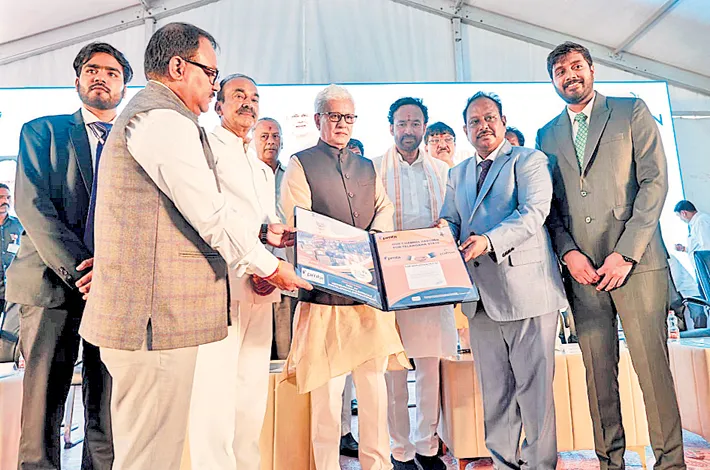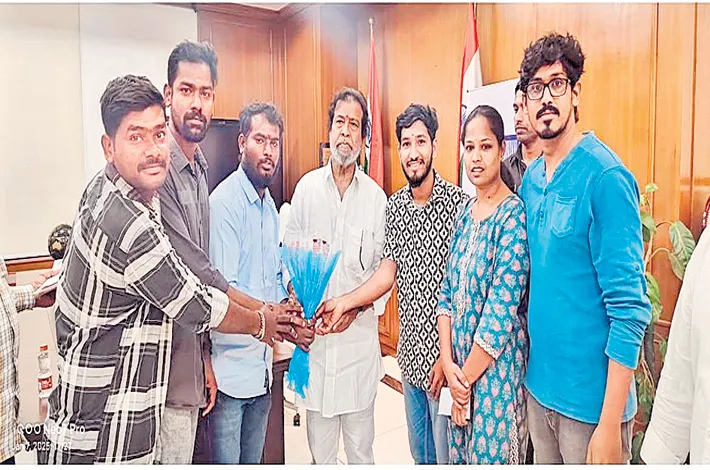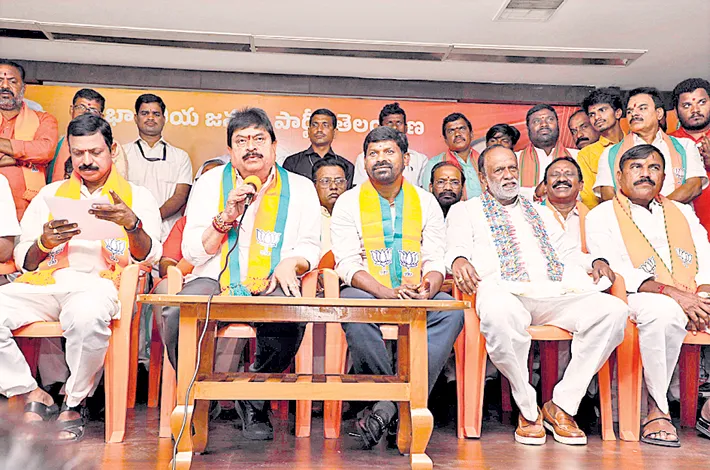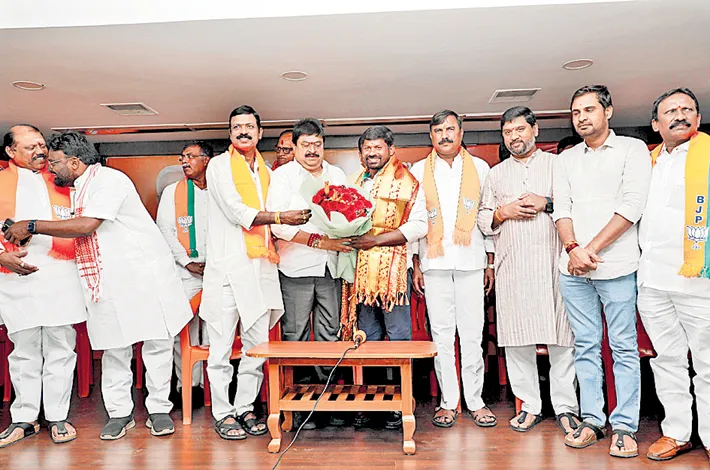Upset with Chandra babu, kammas look to Hyderabad A discontented lot
11-08-2025 12:00:00 AM
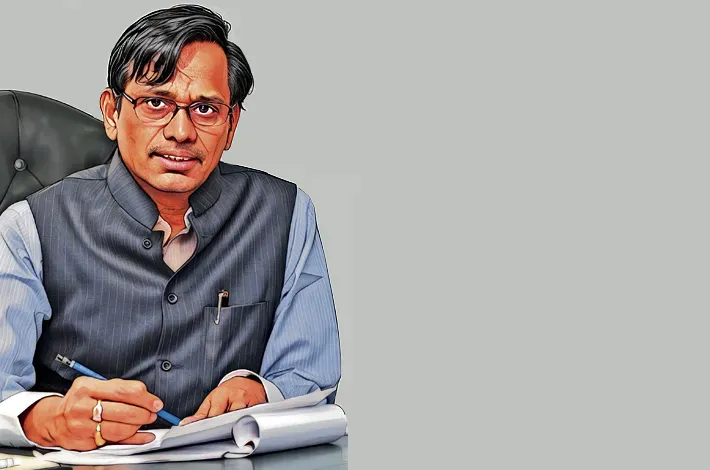
- Since Naidu came to power, Kammas allege that getting an audience is difficult
- In Krishna District, a Kamma stronghold, they are noticibly absent from key positions
- Contracts have been given to the same companies that flourished during Jagan’s rule
- Bureaucrats who were marginalised during Jagan’s rule for their perceived leanings toTDP remain side-lined
Kammas feel betrayed, as they have been with TDP since it was formed in 1982
The bureaucracy is another sore point. Many IAS and IPS officers, notorious for their allegiance to Jagan and listed in Lokesh’s so-called “Redbook” of corrupt officials, have been reinstated in top positions, enjoying the same power they wielded previously. Meanwhile, bureaucrats who were marginalized during Jagan’s rule for their perceived TDP leanings remain sidelined. It’s like a slap in the face. Those who stood by Naidu are still in insignificant posts, while Jagan’s henchmen are back in charge.
C L Rajam
A storm of discontent is brewing among the Kamma community in Andhra Pradesh, a group that has long been a bedrock of support for N. Chandrababu Naidu and his Telugu Desam Party (TDP). For decades, Kamma leaders, activists, and workers stood unwaveringly by Naidu, enduring hardships, including false legal cases and imprisonment during the oppressive regime of YS Jagan Mohan Reddy’s YSR Congress Party (YSRCP). Yet, as Naidu returned to power as Chief Minister in June 2024, many in the community feel betrayed, sidelined, and ignored, prompting a growing number to look toward Hyderabad and Telangana Chief Minister A. Revanth Reddy for a more inclusive future.
The Kamma community, a politically and economically influential caste in Andhra Pradesh and Telangana, has been a cornerstone of the TDP since its inception under NT Rama Rao in 1982. Known for their financial clout and dominance in business, trade, and the IT sector, Kammas have historically rallied behind Naidu, viewing him as a symbol of their pride. During Jagan’s tenure from 2019 to 2024, many Kamma leaders faced severe repercussions for their loyalty to the TDP. False cases were filed, some were jailed on flimsy grounds, and others poured personal funds into organizing rallies, meetings, and campaigns to keep the TDP afloat during its darkest hours. These sacrifices, however, appear to have been forgotten.
They worked day and night, risking everything for Chandrababu and the TDP. But now, they can’t even get an audience with the leadership. It’s as if their loyalty means nothing. The sentiment is widespread, with many feeling that Naidu and his son, Nara Lokesh, have turned their backs on the very people who fought for their return to power.
The allocation of positions in Naidu’s government has further fuelled this resentment. Despite expectations of recognition for their contributions, most Kamma leaders have been overlooked for significant roles. Naidu’s cabinet, sworn in on June 13, 2024, was touted as a balanced representation of castes, with eight ministerial berths for backward classes, five for Kammas, and four for Kapus. However, the Kamma representation feels hollow to many in the community. Prominent leaders from Krishna district, a Kamma stronghold, have been notably absent from key positions, leaving many to question Naidu’s commitment to his core supporters.
Finance Minister P. Keshav, hailing from Ananthapur, and Energy Minister Gottipati Ravi Kumar are among the few Kamma faces in the cabinet. However, Keshav is often seen as disconnected from the core Kamma community, while Gottipati is perceived as a figurehead, with allegations that his ministry is controlled by influential businessman Vishweshwar Reddy. “Gottipati himself admitted to associates that he’s powerless to help Kammas,” claimed a source close to the minister. He’s reportedly scrambling for minor mining contracts just to stay relevant.
Adding to the community’s frustration is the continued favoritism toward businessmen and contractors who thrived under Jagan’s regime. Companies like Megha Engineering (MEIL), Cell Con, Grenco, Visweshawar Reddy and Axis Power, which enjoyed preferential treatment from 2019 to 2024,under Jagan’s regime, are now reportedly receiving lucrative deals under Naidu’s government. These are the same players who flourished while Kamma loyalists suffered,” said a TDP worker from Guntur. “Yet, they’re the ones getting access and contracts, while we’re left in the cold.”
The bureaucracy is another sore point. Many IAS and IPS officers, notorious for their allegiance to Jagan and listed in Lokesh’s so-called “Redbook” of corrupt officials, have been reinstated in top positions, enjoying the same power they wielded previously. Meanwhile, bureaucrats who were marginalized during Jagan’s rule for their perceived TDP leanings remain sidelined. It’s like a slap in the face. Those who stood by Naidu are still in insignificant posts, while Jagan’s henchmen are back in charge.
Middle-level Kamma leaders, in particular, feel abandoned, with no avenue to voice their grievances. There’s no one to listen, no mechanism for redressal,” said a Kamma businessman.
“We’re not asking for handouts; we just want our contributions acknowledged.” The lack of access to Naidu and Lokesh, both Kamma representatives themselves, has only deepened this sense of alienation.
The discontent is pushing many Kamma businessmen and leaders to look back to Hyderabad, where Telangana CM Revanth Reddy has positioned himself as a more accommodating figure. Unlike the BRS government, which restricted Kamma-led protests in Hyderabad during Naidu’s arrest in 2023, Revanth has taken no actions against the community and has signaled openness to their interests. “Hyderabad feels like a safer bet,” admitted a Kamma entrepreneur who recently shifted operations to Telangana. “Revanth understands the value of our community’s contributions.”
For now, the Kamma community’s frustration is palpable, and their gaze is increasingly turning toward Hyderabad, where opportunities and recognition seem more forthcoming. Unless Naidu and Lokesh address this stark reality, the TDP risks losing the loyalty of a community that has been its strongest ally for over four decades. The clock is ticking, and the Kamma community is watching closely. Will Naidu listen, or will the TDP’s foundation crack under the weight of this growing discontent?





